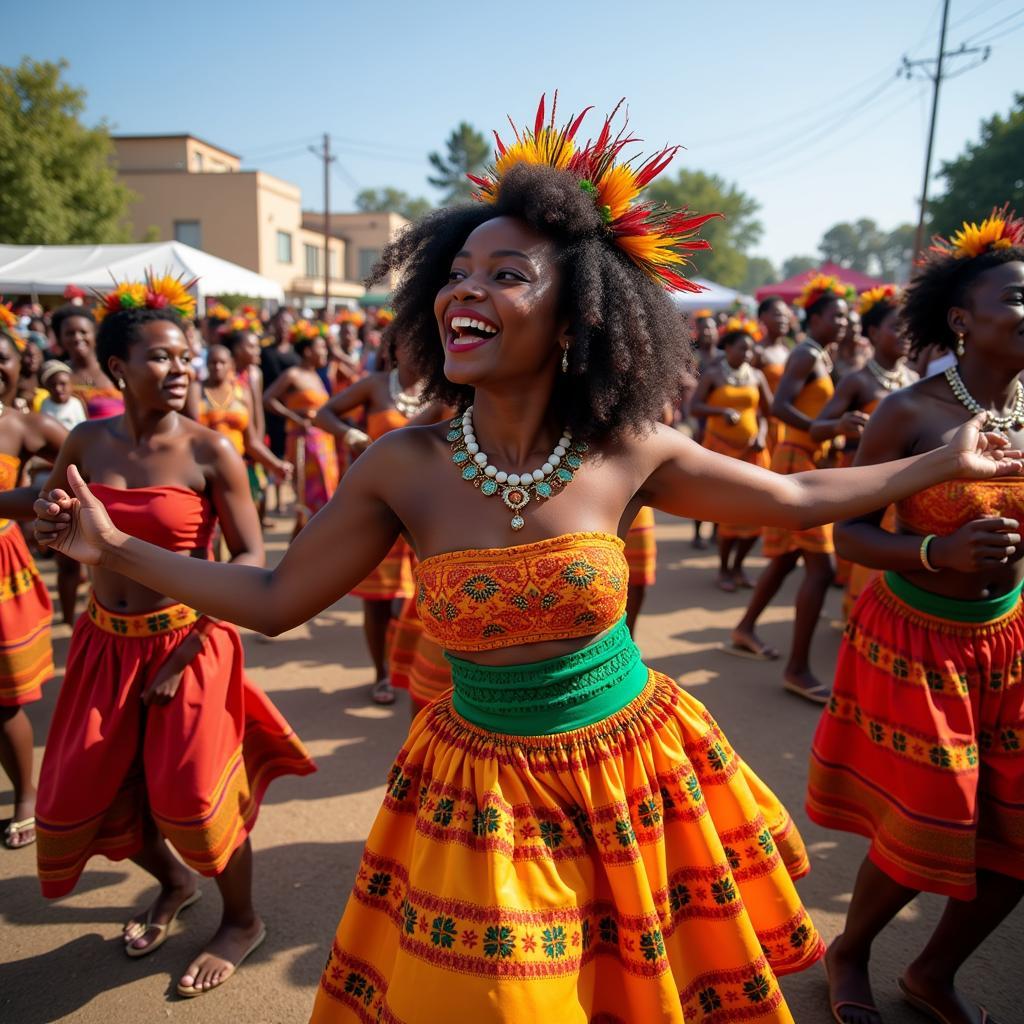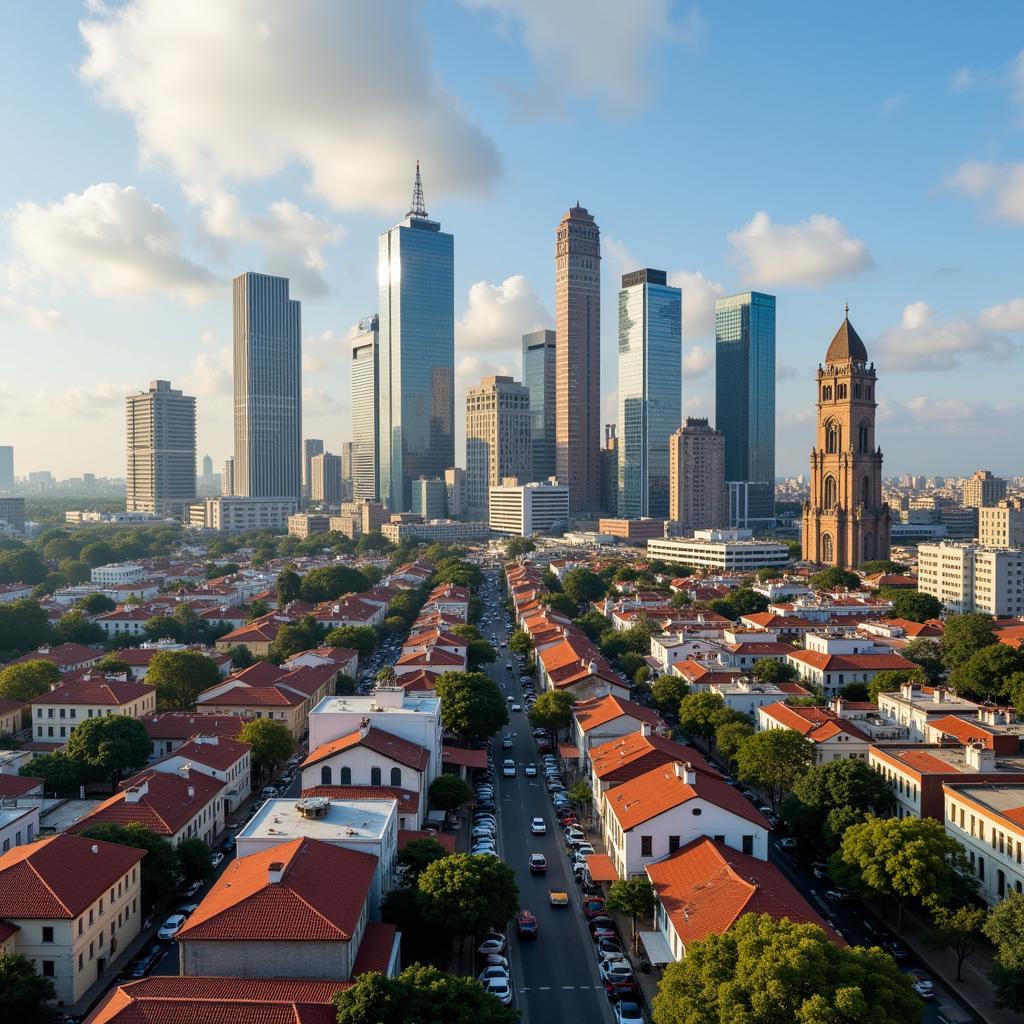Exploring African Countries with French as Their Official Language
French, a language with a rich history and global influence, holds official status in numerous African countries. This linguistic legacy is a testament to the continent’s complex past and its enduring ties to Europe. This exploration delves into the captivating world of African nations where French reigns supreme, examining their cultural tapestry, historical narratives, and the profound impact of the French language.
A Continent Shaped by Colonialism: The Rise of French in Africa
The prevalence of French in Africa is inextricably linked to the era of European colonialism. During the 19th and 20th centuries, France, driven by imperial ambitions, extended its dominion over vast swathes of the African continent. This colonization, while bringing about significant societal and political transformations, also left an indelible mark on the linguistic landscape. The French language, once spoken primarily within the borders of France, found new life and widespread adoption across its African colonies.
Francophone Africa: A Tapestry of Cultures and Languages
Today, a significant portion of the African continent, particularly in the western and central regions, comprises nations where French is an official language. These countries, collectively known as Francophone Africa, represent a vibrant mosaic of cultures, each with its unique traditions, beliefs, and artistic expressions. Despite the shared linguistic heritage, these nations are far from monolithic. Each boasts a distinct cultural identity, shaped by a complex interplay of indigenous traditions and influences absorbed during the colonial era.
 Francophone African Cultural Festival
Francophone African Cultural Festival
The Importance of French in Modern-Day Africa
The French language continues to play a pivotal role in the lives of millions of Africans. It serves as a vital tool for communication, education, and economic advancement. In many Francophone African countries, French is the language of government, administration, and higher education. Proficiency in French often opens doors to better job opportunities and greater social mobility.
Navigating the Linguistic Landscape: Challenges and Opportunities
While the presence of French offers undeniable advantages, it also presents certain challenges. One significant concern is the potential marginalization of indigenous African languages. Promoting multilingualism, where French coexists and thrives alongside local languages, is crucial for preserving cultural heritage and fostering inclusivity.
A Glimpse into Francophone African Countries
Let’s delve into some of the prominent countries in Africa where French holds official language status:
- Senegal: Known for its vibrant music scene and rich literary tradition, Senegal was a key French colony and remains a significant player in Francophone affairs.
- Côte d’Ivoire: A major economic powerhouse in West Africa, Côte d’Ivoire boasts a diverse population and a burgeoning arts and culture scene.
- Democratic Republic of Congo: With a tumultuous history and vast natural resources, the DRC is home to a multitude of ethnic groups and languages, with French serving as a unifying force.
- Cameroon: A country of remarkable geographical diversity, Cameroon is officially bilingual, with both French and English as official languages.
- Morocco: While Arabic is the official language of Morocco, French is widely used in business, government, and education, reflecting the country’s historical ties to France.
 Modern Cityscape in Francophone Africa
Modern Cityscape in Francophone Africa
Conclusion
The enduring presence of French in numerous African countries is a testament to the continent’s complex history and the enduring legacy of colonialism. Francophone Africa, with its diverse cultures and vibrant societies, stands as a testament to the resilience and adaptability of the African people. While navigating the challenges of linguistic diversity and promoting inclusivity remains paramount, the French language continues to shape the destiny of these nations, connecting them to a globalized world and offering a bridge to greater economic and social opportunities.
FAQ
1. What is the origin of the term “Francophone”?
The term “Francophone” refers to people or places where French is spoken as a first language or is used as an official language.
2. How many countries in Africa have French as an official language?
There are 29 countries in Africa that recognize French as an official language.
3. Does the use of French in Africa threaten the survival of indigenous languages?
While concerns exist about the potential marginalization of indigenous languages, many Francophone African countries are actively working to promote multilingualism and preserve their linguistic diversity.
4. What are some notable Francophone African authors?
Francophone African literature boasts a constellation of literary giants, including Chinua Achebe, Wole Soyinka, Ngũgĩ wa Thiong’o, and Chimamanda Ngozi Adichie.
5. How does the use of French in Africa impact the continent’s relations with France?
The shared linguistic heritage continues to shape relations between France and its former African colonies, fostering cultural exchanges, economic ties, and diplomatic partnerships.
For further exploration of related topics, you can visit these pages:
Need assistance? Reach out to us at:
Phone: +255768904061
Email: kaka.mag@gmail.com
Address: Mbarali DC Mawindi, Kangaga, Tanzania.
We have a dedicated customer support team available 24/7.

